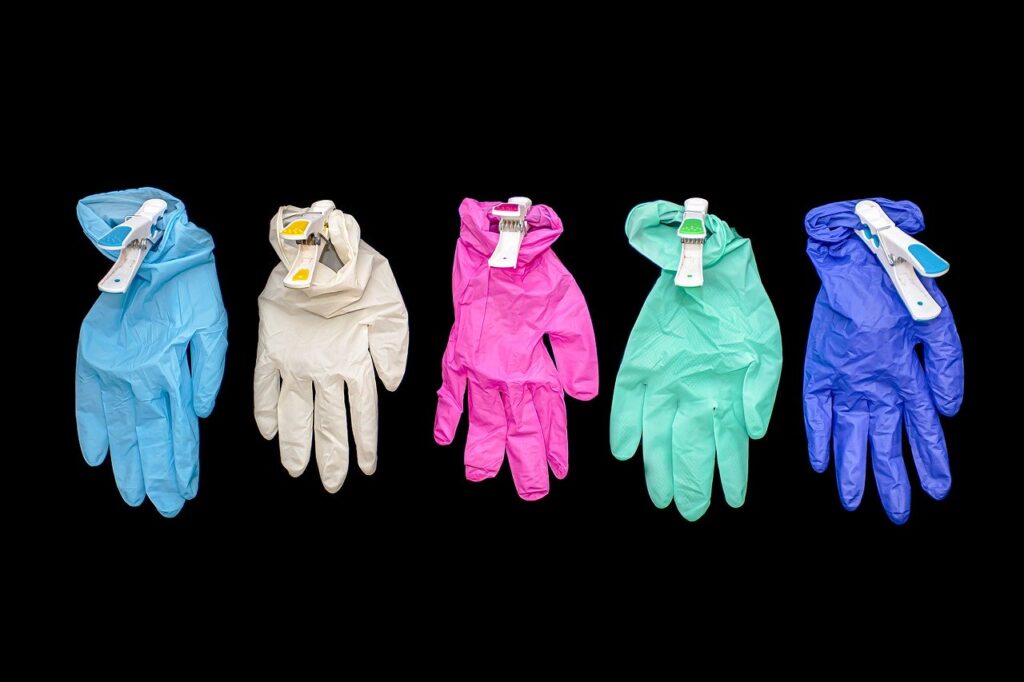It’s not whistleblowing to say there isn’t enough PPE to go round…
… it’s flagging up a problem.
If you tell your significant other half, you’ll get sympathy. Tell your colleagues, they’ll already know. Tell your manager, they’ll get it but it is unlikely they can do anything about it, they’ll already know.
Who do you tell?
Do you tell the manager’s manager? Maybe. Can we assume your manager has already told her manager? Why wouldn’t they? What has your manager’s manager, told his boss… and his boss told her boss?
There’s a global shortage… tell me about it!
You could tell your MP, who’d probably send you a templated letter about global shortages, government investment and millions of left-handed gloves…
You could tell the press.
BBC’s Newsnight were told and said they’ve…
‘seen evidence of pressure being applied to doctors to not share concerns… about PPE’.
They said they’d seen a newsletter sent out to staff, at one trust, suggesting subjects for tweets; thanking staff for their hard work, paying tribute to retired NHS staff and retweeting posts from the trust’s account.
I’m not sure that’s a smoking gun? Might be the wrong end of the stick? A campaign; please support your colleagues? Such a bad thing?
Newsnight, told us;
… another trust put up posters in hospital staff areas which told healthcare workers not to ‘make public appeals for equipment, donations or volunteers’.
If it’s to give the impression we’ve got plenty, forget it, the rabbit’s out of the hat.
There may be other reasons. It’s not that simple…
PPE, we need it but to use in hosptials, must pass stringent safety tests. The last thing you want is for fundraisers to organise a sponsored sit-in-a-bath-of-baked-beans-for-a-week, use the proceeds to buy 100,000 masks, only to find they don’t pass muster.
Volunteers? We love ’em, but turning up, needing DBS checks, references and health and safety training, may, right now, be beyond a Trusts ability to cope. Directing them to the national scheme, with all its faults, might make better sense.
Donations are always welcome but linked to kit, creates running costs, staffing and training consequences. Donations can’t be used to ‘buy care’ and cash can’t be given to staff. As welcome as they are, donations must be channeled through Trusts’ trust-funds, be gratefully received and to have maximum impact, be properly planned and channeled through governance and public accountability processes.
It is easy to see how simple it is to misinterpret advice and misunderstand the irritating bureaucracy the NHS has to circumnavigate.
Newsnight finally got to the nub of the story; a whistleblower, short of PPE, who had been ‘hauled up in front of a panel of senior managers‘. They alleged they were admonished, threatened and tried to convince them to ‘use more positive stories’.
A times like this, when we need each other the most, why do we get into these tangles? It’s not just the NHS…
Over the weekend, in the news, nine teacher’s unions, expressing concerns about opening schools were parked, ‘in front of a panel of senior medics and scientists‘ to convince them, to go along with; ‘it’s safe to send some of our kids back to school’.
The BMA weighed-in, disagreed, so did the teachers.
What’s missing here? What’s missing in these two stories?
We are missing dialogue, talking to each other, explaining, working together. I hate the word ‘consultation’ but it does have a role.
It is crazy for the most senior people in the NHS not to discuss a shortage of PPE, with the frontline staff. Be frank…
‘We’ve busted a gut to find PPE but we are short of gowns, what can we do, until we can restock. How can you help?’
It is bonkers to announce easing a component of lockdown without, first, involving the people most exposed to risk, the teachers. Be frank…
‘We have to start getting back to normality, how do you suggest we do it. How can you help?’
Decision makers, talking to the people most affected by the consequences of their decisions. Makes sense to me.
Dialogue, conversations, talks, chats, heart-to-heart and head-to-head. Telling and sharing the problems, glitches and shortcomings. Finding the solutions, answers and work-arounds, together.
So simple, it’s not worth talking about.
News and Comment from Roy Lilley
Contact Roy – please use this e-address roy.lilley@nhsmanagers.net
Reproduced at thetrainingnet.com by kind permission of Roy Lilley.








